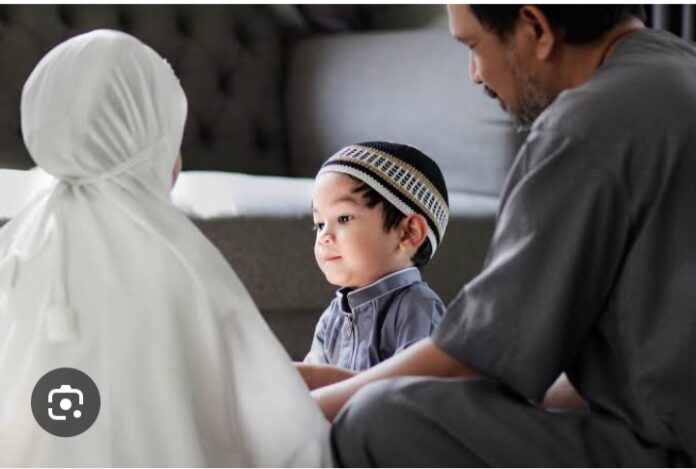Guides, Protectors, and Role Models: The duty of parents in Islam
Parenting is one of the greatest responsibilities entrusted by Allah to humankind. In Islam, the family is the foundation of society, and parents are regarded as the primary guides, protectors, and nurturers of their children.
Their role extends beyond providing food and shelter, it includes shaping the child’s character, faith, and moral compass in accordance with the teachings of the Qur’an and the Sunnah of the Prophet Muhammad (peace be upon him).
1. Parents as Caregivers and Protectors
One of the primary roles of parents is to provide for the physical and emotional needs of their children. The Qur’an emphasises the duty of providing sustenance and care:
“Mothers may breastfeed their children two complete years for whoever wishes to complete the nursing [period]. Upon the father is the mothers’ provision and their clothing according to what is acceptable.”
(Surah Al-Baqarah 2:233)
This verse highlights both the nurturing role of the mother and the financial responsibility of the father, showing that both parents share in raising and supporting their children.
2. Spiritual and Moral Upbringing
Beyond material needs, Islam commands parents to instill faith, righteousness, and good manners in their children. Luqman’s advice to his son is a timeless example recorded in the Qur’an:
“And [mention, O Muhammad], when Luqman said to his son while he was instructing him, ‘O my son, do not associate [anything] with Allah. Indeed, association [with Him] is great injustice.’”
(Surah Luqman 31:13)
This shows the responsibility of parents to guide their children towards Tawheed (the oneness of Allah), moral conduct, and consciousness of the Hereafter.
The Prophet Muhammad (peace be upon him) also said:
“No father can give his child a gift better than good manners.”
(Sunan al-Tirmidhi, Hadith 1952)
This hadith underlines that instilling values, discipline, and good behavior is among the greatest gifts parents can provide.
READ ALSO: Her Divine Rights: The status and entitlements of a wife in Islam
3. Parents as Role Models
Children learn more from the actions of their parents than from their words. Islam stresses that parents should embody the values they want to see in their children. Parents who are truthful, kind, prayerful, and just naturally pass these virtues to their children through example.
The Prophet Muhammad (peace be upon him) said:
“Every one of you is a shepherd, and every one of you will be asked about his flock. The ruler is a shepherd over his people and will be asked about them, and a man is a shepherd over his family and will be asked about them, and a woman is a shepherd over her husband’s house and children and will be asked about them…”
(Sahih al-Bukhari and Sahih Muslim)
This hadith emphasizes accountability, parents will be questioned on the Day of Judgment about how they raised their children.
4. Providing Education and Discipline
Islam encourages both worldly and religious education. Parents must ensure that children acquire knowledge that benefits them in this life and the Hereafter. Discipline is also part of the parental role, but Islam encourages moderation, neither neglect nor harshness.
The Prophet Muhammad (peace be upon him) said:
“Command your children to pray when they are seven years old; and discipline them for it when they are ten years old; and separate them in their beds.”
(Sunan Abu Dawood, Hadith 495)
This illustrates how parents should train their children gradually in worship and discipline, preparing them for responsible adulthood.
READ ALSO: Understanding the rights of husband in Islam
5. Love, Compassion, and Mercy
Islam encourages parents to show love and mercy to their children. The Prophet Muhammad (peace be upon him) was known for his tenderness towards children. Once, when he kissed his grandson, a companion remarked that he never kissed his children. The Prophet responded:
“Whoever does not show mercy will not be shown mercy.”
(Sahih al-Bukhari, Sahih Muslim)
This hadith reflects the importance of emotional warmth, compassion, and kindness in parenting.
In conclusion, in Islam, the role of parents goes far beyond caretaking. They are entrusted with raising righteous individuals who uphold faith, morality, and good character. Parents serve as guides, teachers, role models, and protectors. Their efforts, when done with sincerity and patience, are considered acts of worship and are heavily rewarded by Allah.
By fulfilling their duties with love, justice, and responsibility, parents not only secure the well-being of their children but also contribute to the moral and spiritual strength of the entire society.
Follow the Neptune Prime channel on WhatsApp:
Do you have breaking news, interview request, opinion, suggestion, or want your event covered? Email us at neptuneprime2233@gmail.com





